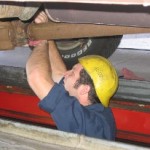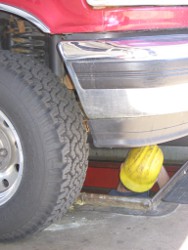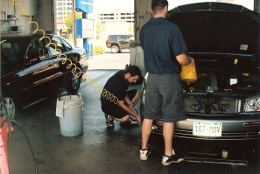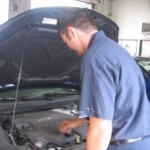Your transmission is the one piece of equipment that is multi-faceted. It controls everything from shifting your car from gear to gear, to controlling how fast you are going. While you may never change out a transmission or spend time learning how it works, there are some tips to help you with transmission troubleshooting, and knowing when its time to call in a mechanic. 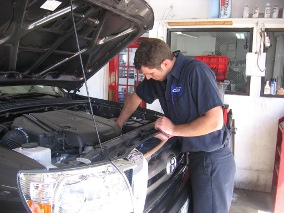
While there are many pieces that make up a standard automatic transmission system, all transmissions have a few basic parts.
- The bell housing, or metal case that sits underneath your car
- The gears
- The transmission fluid
- A filter to keep the transmission operating properly
You’ll usually notice a problem with your transmission in one of two ways. Either your car will simply stop, or it starts running roughly. These two problems are generally caused by:
- Low fluid level, which causes your car to shift poorly, and can eventually lead to transmission damage.
- A leak within the system. This is usually easy to spot because transmission fluid has a red tint.
- A clogged filter, which limits the cars performance.
Because of the many parts associated with a transmission, and the specialized tools you’ll need for troubleshooting and fixing, it’s usually best to leave it up to a professional. A professional understands what can be causing the problem, and can usually spot the problem quickly. They will test a variety of things before moving on to a rebuild or replacement.
For all of your Denver Auto Repair needs, trust Express Car Care. Call (303) 691-2760 or stop by our shop today.

 A question we often hear at our shop is “why is my check engine light flashing?” There is not always a simple and quick answer to this question.
A question we often hear at our shop is “why is my check engine light flashing?” There is not always a simple and quick answer to this question.
